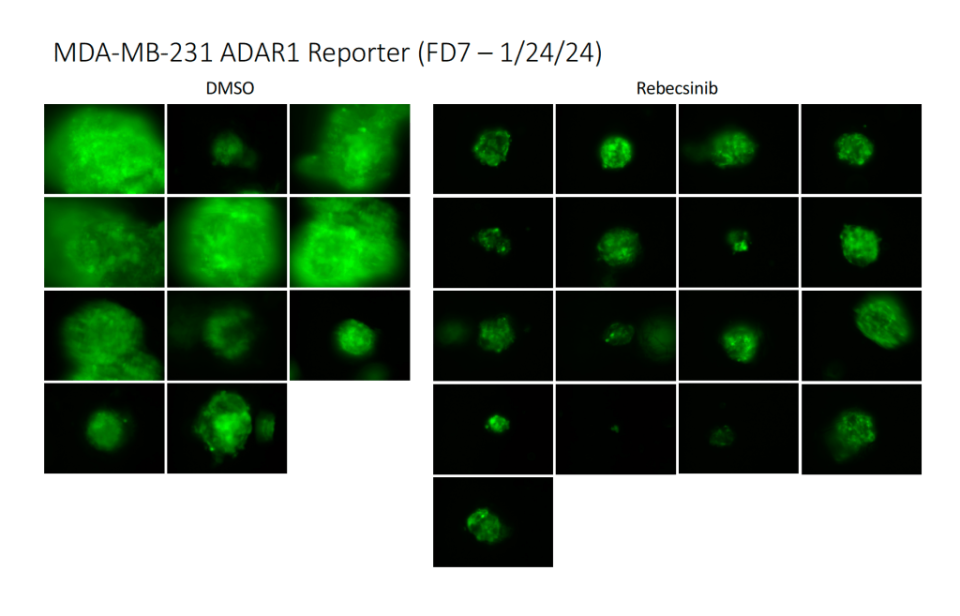Frustrated by the constraints of Earth, a team of California scientists took tumor research to space—and may have discovered a ‘kill switch’ for cancer
With progress in the battle against cancer progressing slowly on Earth, California researchers have teamed up with astronauts to take the battle to the stars.
In space, the weak pull of gravity, also known as microgravity, places cells under incredible stress, causing them to age more rapidly. This phenomenon allows scientists to witness the progression of cancer growth—and the effect of cancer treatments—much more rapidly than they could on Earth.
When the Axiom 3 spaceflight launched from Kennedy Space Center in Cape Canaveral, Fla., on Jan. 18, bound for the International Space Station, it took with it four crewmembers and some other unusual passengers—miniature tumor organoids produced from the cells of cancer patients, grown in the lab by scientists at the University of California San Diego.
Axiom 3 was slated for splashdown on Saturday but has been delayed until Tuesday, at the earliest, due to weather, according to SpaceX, which manufactured the Crew Dragon spacecraft used for the mission.
It wasn’t the first time the team—led by Dr. Catriona H.M. Jamieson, a hematologist and medical professor at the college—sent such samples into space. It previously launched stem cells on multiple Space X flights and noticed that pre-leukemic changes occurred, unseen during the same timeframe in controls on the ground.
“We said, ‘Wait, what if you send cancer up?’” Jamieson tells Fortune. “‘Will the cancer go from bad to worse?’ And the answer is yes, under conditions of stress” caused by microgravity.
A promising ‘kill switch’—in space, anyway
When cancer progresses under stress, it’s due—at least in part—to a cloning gene it turns on, known as ADAR1, according to Jamieson. On previous missions, her team noticed that mini tumors sent to space activated the gene before tripling in size in just 10 days, a much faster rate of growth than seen on the ground. Further testing revealed that ADAR1 “proliferated wildly” in the space tumors as they grew with disturbing, unchecked rapidity.
On the last Axiom mission, Jamieson’s team sent up mini tumors treated with two types of anti-cancer medications that block ADAR1 in different ways. The drugs included fedratinib, which is already FDA approved for the treatment of blood cancers, but not solid masses.
Enthused by the results, Jamieson’s team began work on an experimental drug called rebecsinib that blocks ADAR1 activation in a different way—by preventing it from spawning malignant proteins. When Axiom 3 was launched last month, with it were breast cancer mini tumors treated with the new concoction. So far, researchers have found that it inhibits cancer growth significantly when compared to controls, and is even more effective than fedratinib.
“It’s basically preventing this breast cancer from cloning itself,” Jamieson says of rebecsinib, adding that it may be a “kill switch for cancer.”

Her team is hoping to launch the drug into clinical trials—on Earth, of course—by the end of the year.
“We’re not slowing down,” she says. “When we see data like this, we think it’s our responsibility to get this to clinic.”
Results like the ones seen in space give Jamieson reason for hope, she says—concrete reason.
“It’s not just unbridled hope, it’s practical hope,” she says, adding that, aside from scientists on the ground, the team working to advance the potentially life-saving innovation includes NASA and European astronauts.
Adds Jamieson: “On the International Space Station, they don’t mess around.”
This story was originally featured on Fortune.com

 Yahoo Finance
Yahoo Finance 